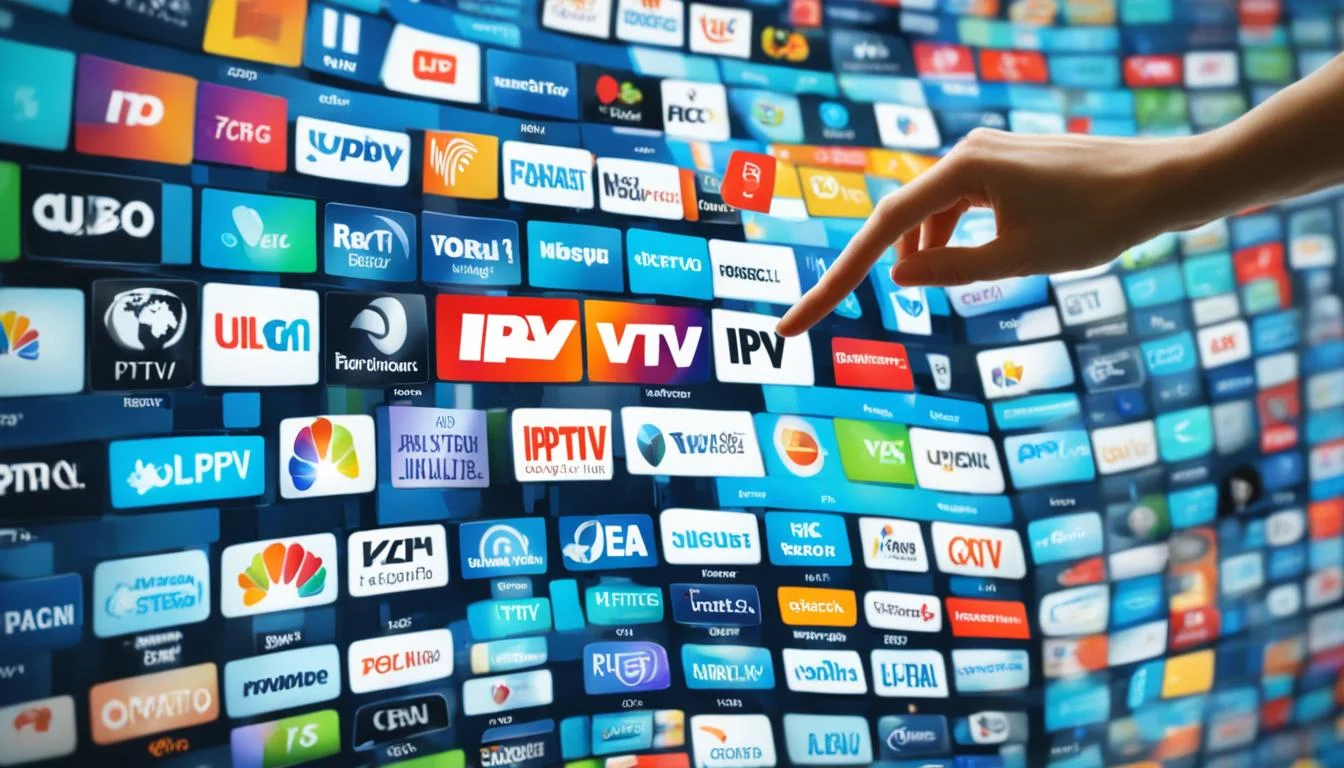Understanding IPTV Services: The Future of Digital Television
The world of television has evolved dramatically over the years, shifting from traditional broadcast and cable TV to modern, internet-based solutions. One of the most significant advancements in this space is IPTV services. With the rise of high-speed internet, IPTV (Internet Protocol Television) has become a buzzword in the entertainment industry, offering viewers a new way to consume media. This blog post dives deep into what IPTV services are, how they work, their benefits, and why they are quickly becoming the go-to choice for consumers seeking flexible and extensive viewing options.
What Are IPTV Services?
IPTV services stand for Internet Protocol Television, a system where television content is delivered over the internet rather than traditional terrestrial, satellite, or cable television formats. Unlike conventional methods that rely on broadcast signals, IPTV services use the internet to stream content directly to users’ devices. This system enables viewers to watch live TV channels, on-demand videos, and other multimedia content seamlessly, as long as they have an internet connection.
The main advantage of IPTV services is their ability to offer a wide variety of content that can be accessed from anywhere in the world. This is a stark contrast to traditional TV services that are often limited by regional broadcasting restrictions. With IPTV services, users can choose from an array of global channels, enjoy on-demand movies and series, and even access niche content tailored to their preferences.
How IPTV Services Work
To understand how IPTV services function, it’s essential to grasp the basic technology behind them. At its core, IPTV relies on internet protocols, which are rules that govern data transmission over the internet. Here’s a breakdown of the process:
Content Acquisition: The first step in IPTV services is acquiring the content. This could include live TV channels, movies, TV shows, and even exclusive streaming content. The content is either purchased or licensed by the IPTV provider.
Content Encoding: Once the content is acquired, it is encoded into a digital format that can be streamed over the internet. This process involves converting the video and audio signals into IP packets, which can then be transmitted to users.
Content Storage: After encoding, the content is stored on a server. IPTV services often use cloud storage solutions to host a vast library of on-demand videos and live TV feeds. This enables users to access the content whenever they want.
Content Delivery: When a user selects a program to watch, the IPTV services provider delivers the content over the internet using a Content Delivery Network (CDN). The CDN ensures that the data is transmitted efficiently and without buffering, even during peak usage times.
User Interface and Playback: Finally, the user interface is what makes IPTV services easy to use. Users can browse through the available content, select channels, and watch their preferred shows using an IPTV app or a dedicated IPTV set-top box. The content is then streamed in real-time, providing a seamless viewing experience.
Types of IPTV Services
There are three main types of IPTV services:
Live IPTV: This is similar to traditional TV broadcasts, where users can watch live events, news, sports, and other channels in real-time. It’s an excellent option for those who want to stay updated with the latest happenings as they occur.
Time-Shifted IPTV: Also known as catch-up TV, this service allows viewers to watch shows that have already been broadcast but are still available for a limited time. It’s perfect for those who might have missed a live broadcast but want to catch up later.
Video on Demand (VOD): VOD is one of the most popular forms of IPTV services. It gives users access to a vast library of movies, TV shows, documentaries, and other video content that they can watch at any time. It’s similar to platforms like Netflix and Hulu but can be part of a comprehensive IPTV package.
Advantages of IPTV Services
IPTV services offer numerous benefits that make them an attractive option for both users and providers. Some of the key advantages include:
Flexibility and Convenience: One of the most significant advantages of IPTV services is the flexibility they offer. Users can watch their favorite shows, movies, and live sports events on various devices, including smartphones, tablets, smart TVs, and computers. This flexibility allows viewers to enjoy content on the go, without being tied to a specific location or device.
Customizable Content: With traditional TV, viewers often have to pay for channels they never watch. IPTV services allow for more customization, enabling users to select specific channels or packages that match their preferences. This level of personalization ensures that viewers only pay for what they actually want to watch.
On-Demand Access: The ability to access content on demand is a game-changer. With IPTV services, users can watch movies, TV shows, and other video content whenever they want, without waiting for a specific broadcast time. This is particularly beneficial for busy individuals who may not have time to catch live broadcasts.
Interactive Features: Many IPTV services come with interactive features, such as the ability to pause, rewind, and fast-forward live TV. This functionality gives users control over their viewing experience, making it more interactive and engaging.
Cost-Effective: IPTV services are often more affordable than traditional cable or satellite TV packages. With the increasing competition in the market, many providers offer competitive pricing and attractive packages, making it an economical choice for consumers.
Challenges Facing IPTV Services
Despite their numerous advantages, IPTV services face certain challenges that need to be addressed to ensure widespread adoption and long-term success. Some of these challenges include:
Internet Dependency: Since IPTV services rely on internet connectivity, users must have a stable and high-speed internet connection to enjoy uninterrupted streaming. In areas with poor internet infrastructure, this can be a significant barrier to entry.
Content Licensing and Legal Issues: IPTV services must navigate complex content licensing agreements to offer a wide range of channels and on-demand content. Unauthorized IPTV services often stream copyrighted content without permission, leading to legal issues and shutdowns.
Quality of Service: The quality of IPTV services can vary depending on the provider and the user’s internet connection. Buffering, lag, and low-resolution streams can negatively impact the viewing experience. Providers need to invest in robust infrastructure and CDNs to ensure a high-quality experience.
Security and Privacy Concerns: As with any online service, IPTV services are susceptible to cyber threats. Users need to be cautious about choosing reputable providers to avoid risks such as malware, data breaches, and unauthorized access to personal information.
Choosing the Right IPTV Services Provider
With the growing popularity of IPTV services, numerous providers have entered the market, making it challenging to choose the right one. Here are some factors to consider when selecting an IPTV provider:
Content Library: A good IPTV services provider should offer a wide range of content, including live TV channels, on-demand movies, TV shows, and exclusive content. Check the provider’s content library to ensure it meets your preferences.
Streaming Quality: The quality of streaming is crucial for an enjoyable viewing experience. Opt for providers that offer high-definition (HD) and Ultra HD (4K) streaming options. Look for reviews and feedback from other users to gauge the streaming quality.
Device Compatibility: Ensure that the IPTV services provider supports multiple devices, such as smartphones, tablets, smart TVs, and streaming boxes. This flexibility allows you to watch your favorite content on different devices.
Pricing and Packages: Compare the pricing and packages offered by different providers. Some may offer free trials or discounted rates for new customers, making it easier to test the service before committing to a subscription.
Customer Support: Reliable customer support is essential when it comes to IPTV services. Choose a provider with responsive customer service to address any issues or queries you may have during your subscription.
The Future of IPTV Services
The future of IPTV services looks promising as more people move away from traditional cable and satellite TV. With the increasing availability of high-speed internet and the growing demand for flexible, on-demand content, IPTV is poised to dominate the entertainment landscape. Emerging technologies like 5G will further enhance the streaming experience, making it possible to watch high-quality content with minimal buffering.
Moreover, the integration of artificial intelligence and machine learning into IPTV services is expected to revolutionize the way viewers consume content. AI algorithms can analyze viewing habits and preferences to recommend personalized content, making the experience even more engaging and tailored to individual users.
IPTV Services vs. OTT Platforms
While IPTV services and Over-the-Top (OTT) platforms like Netflix, Amazon Prime Video, and Disney+ may seem similar, they have key differences. IPTV is a structured system offered by internet service providers (ISPs), delivering a set of TV channels and on-demand content over a private IP network. In contrast, OTT platforms provide content directly over the open internet without requiring a specific ISP.
IPTV usually offers a wider range of live TV channels and may include regional programming, while OTT services focus more on on-demand content. However, with advancements in technology, the lines between these two are increasingly blurring, and many IPTV services providers now include OTT features in their packages.
Conclusion
IPTV services are transforming the way we watch television, offering a more flexible, interactive, and cost-effective alternative to traditional broadcasting. As internet speeds continue to improve and streaming technology becomes more advanced, the demand for IPTV services is expected to grow. For viewers seeking a customizable and convenient way to access a vast array of content, IPTV is undoubtedly a compelling option.
Whether you are looking to cut the cord with your cable provider or simply want a more personalized viewing experience, exploring IPTV services might just be the perfect solution for your entertainment needs.






